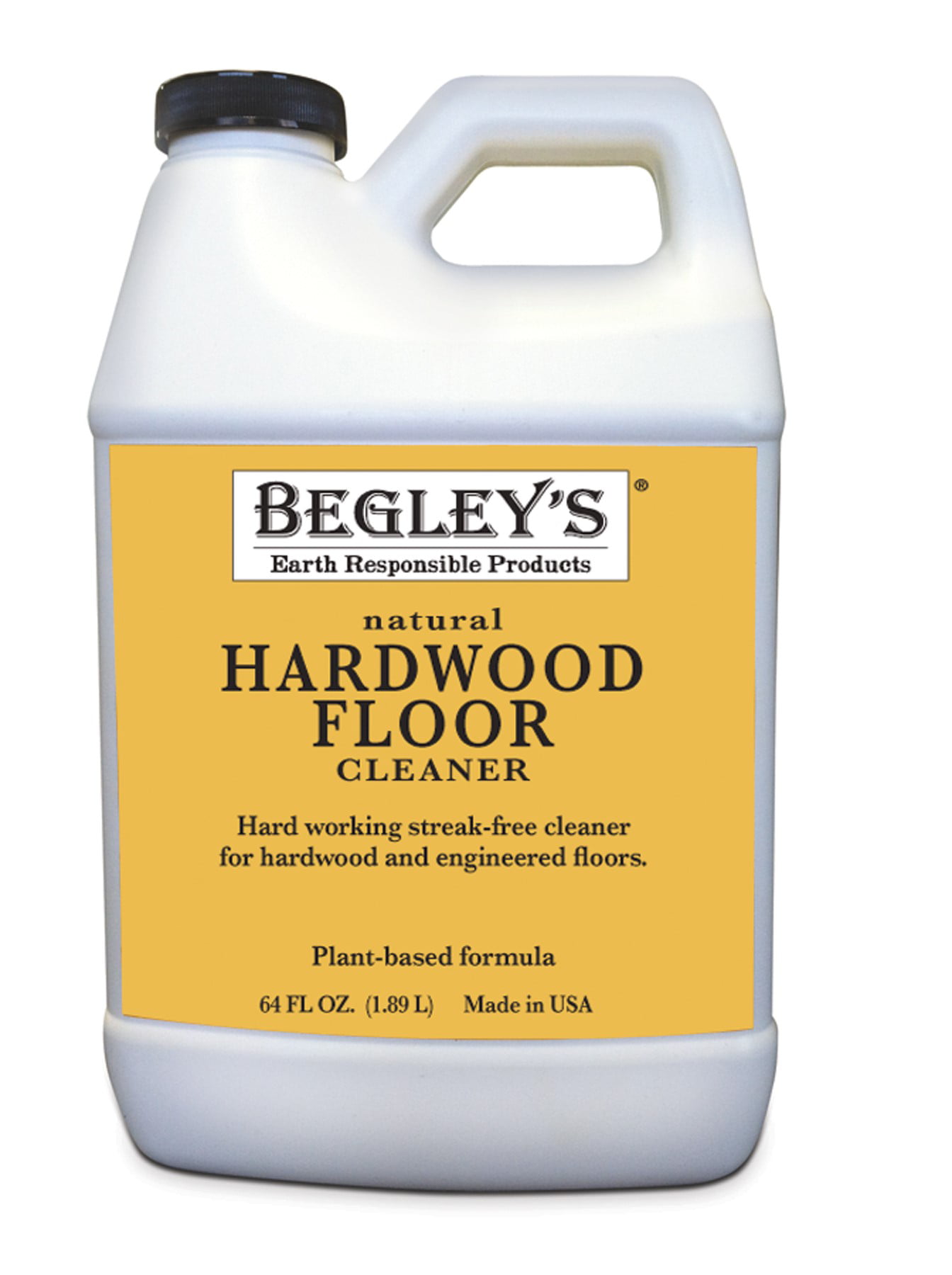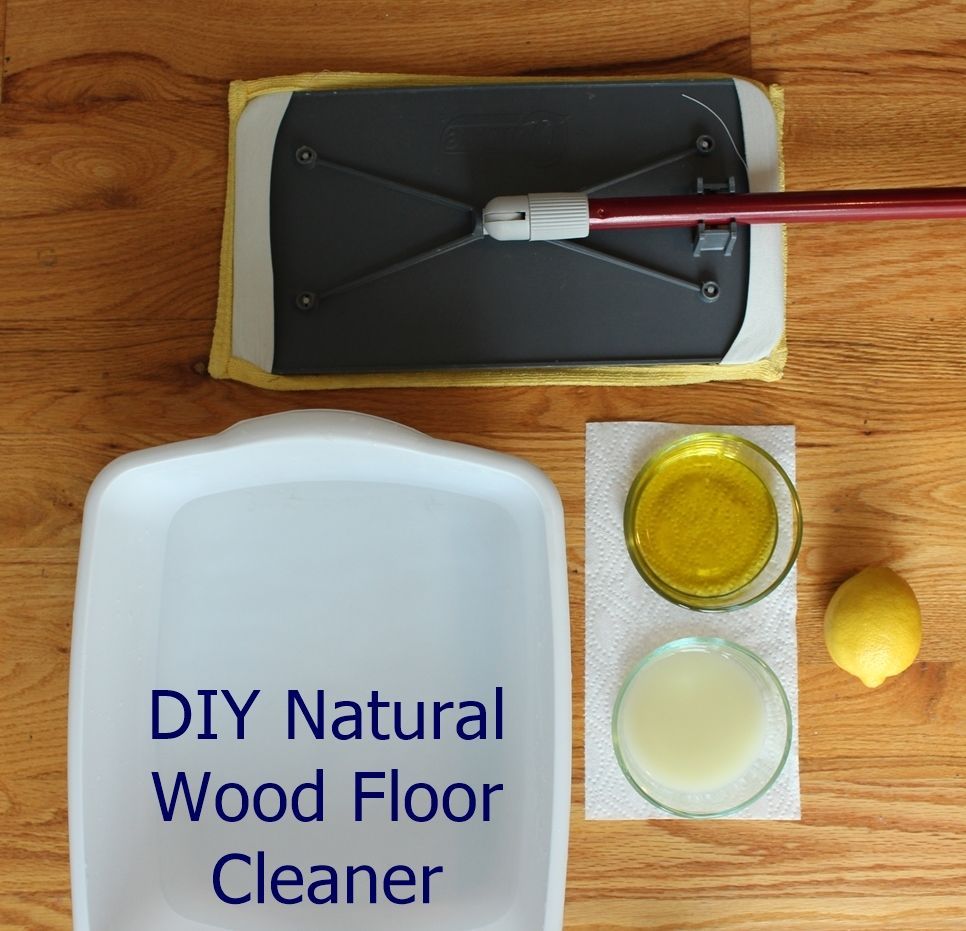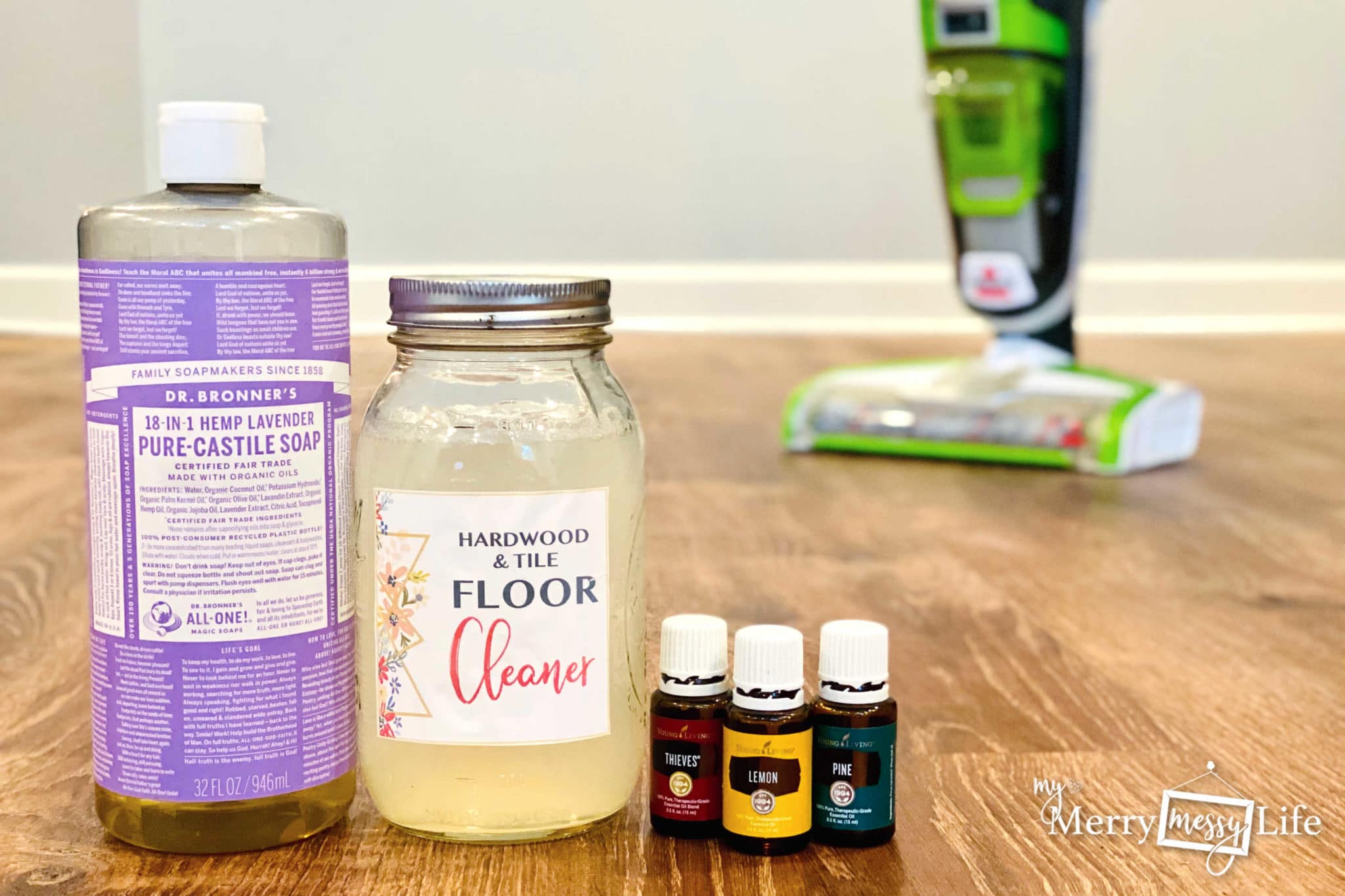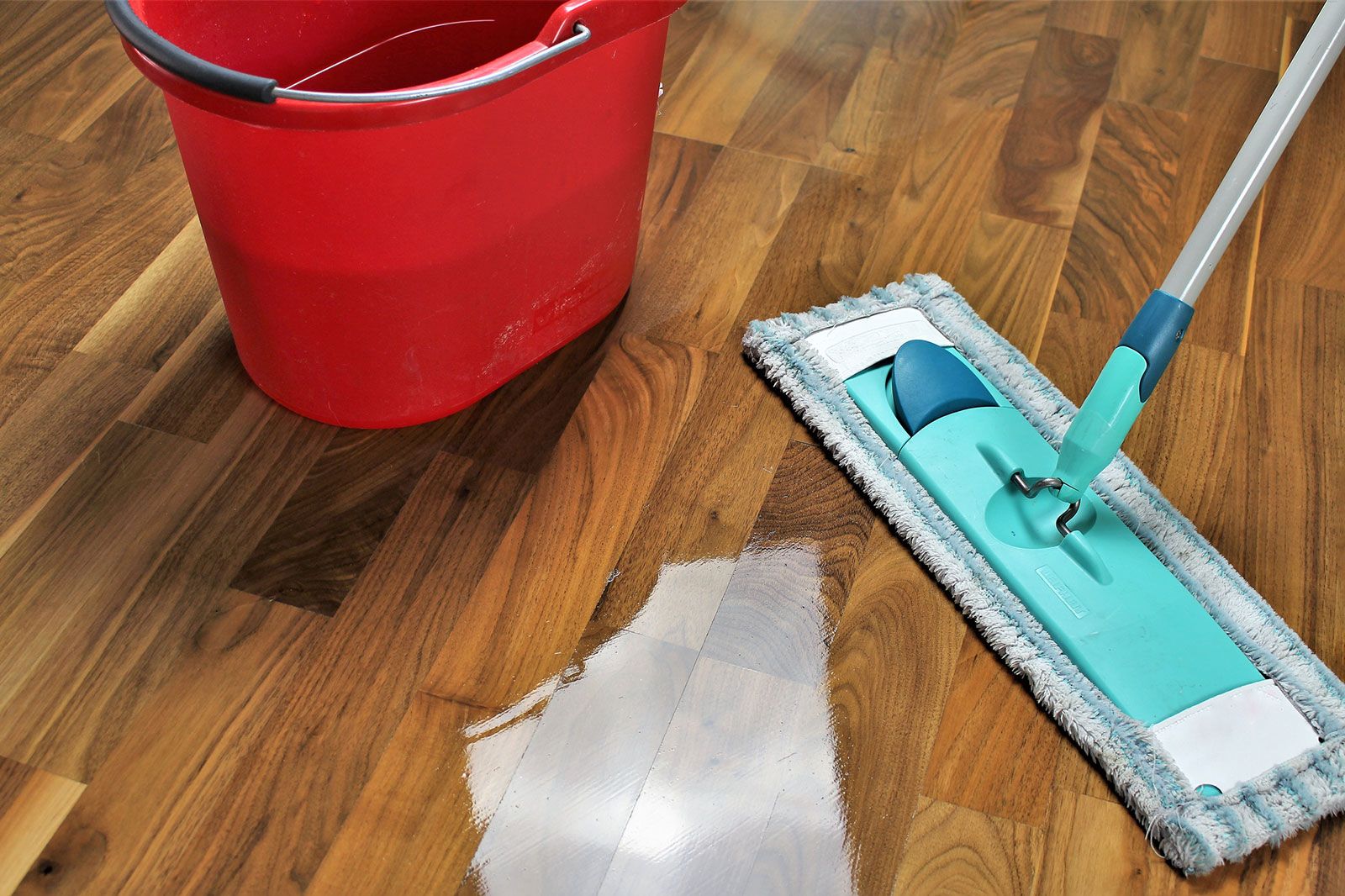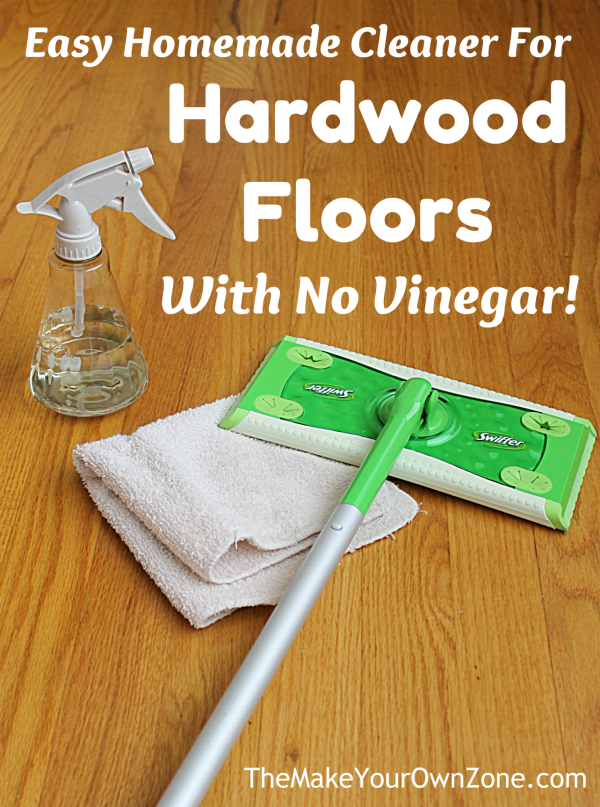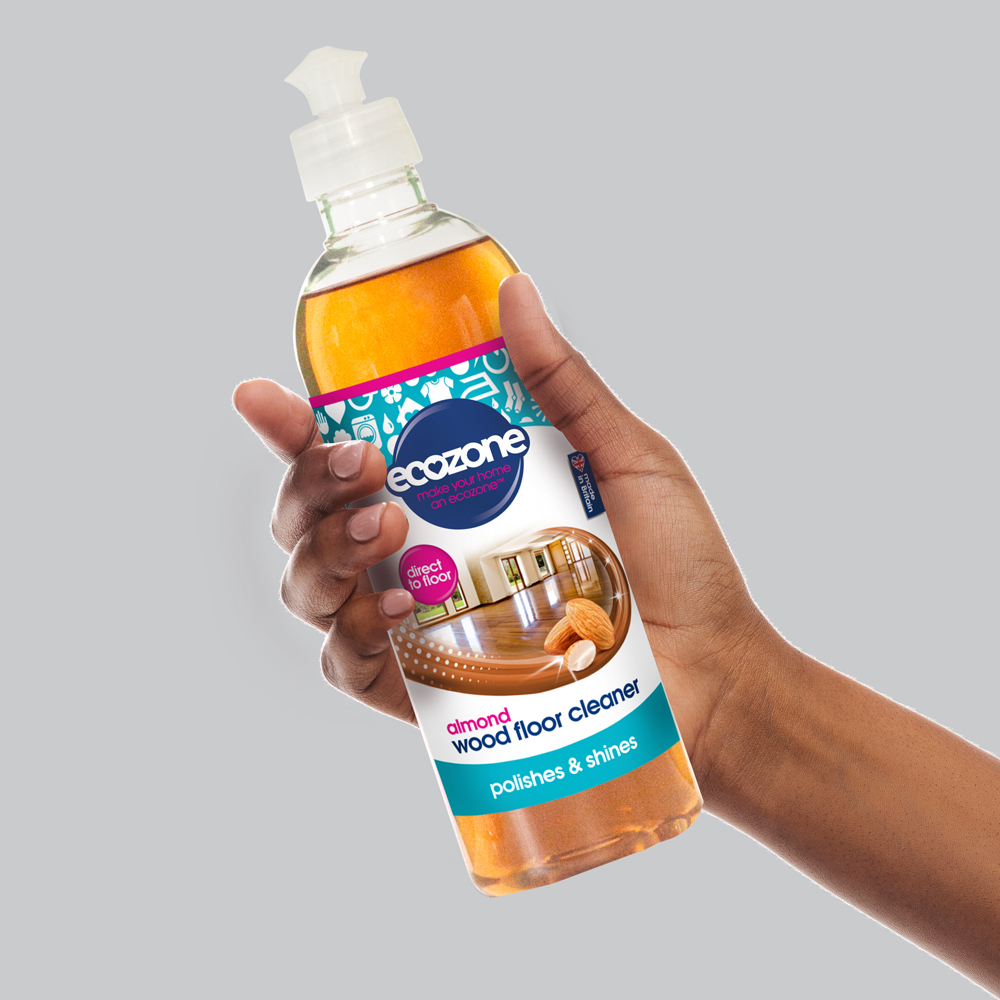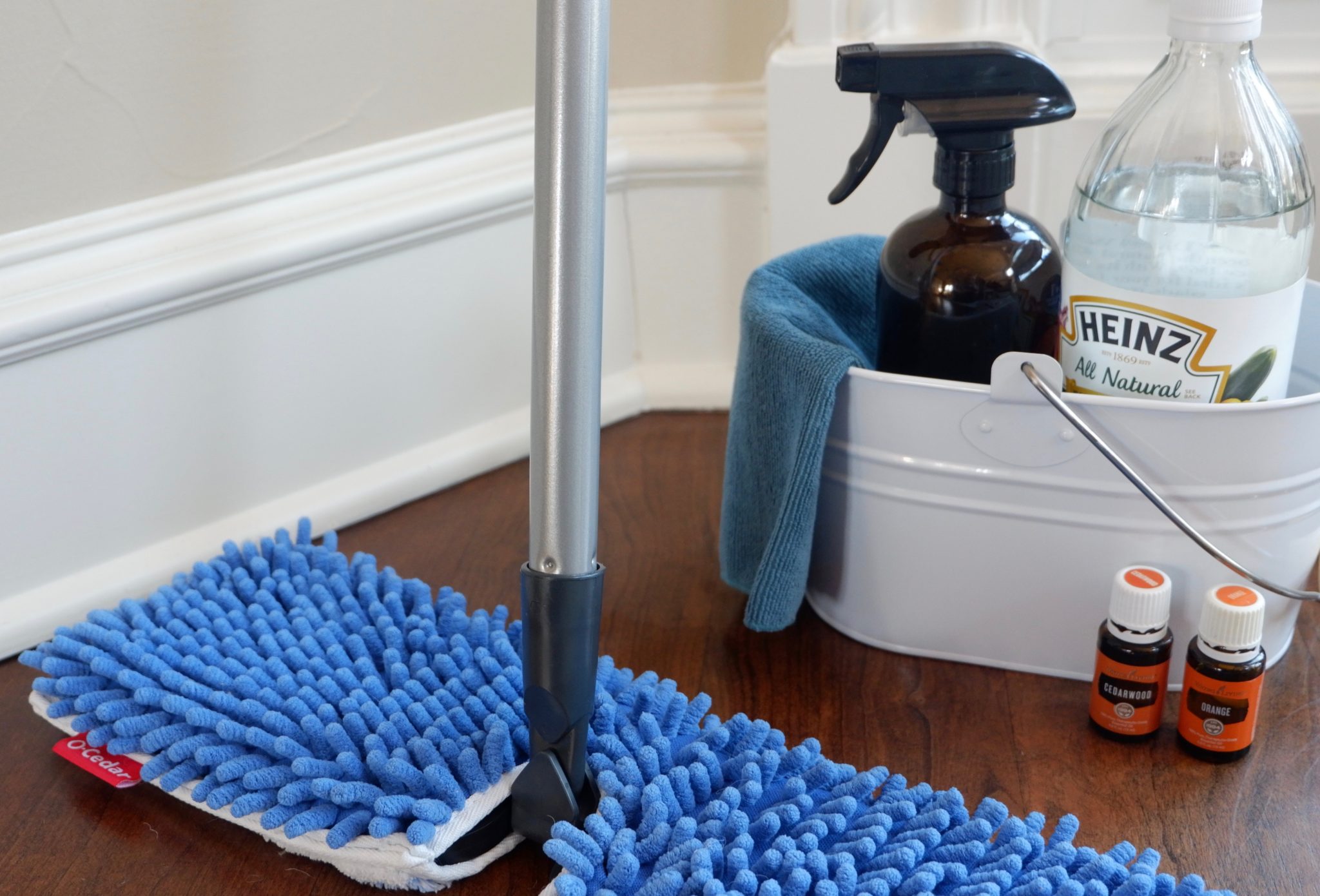Wood floors are a timeless and elegant choice for many homes, but maintaining their beauty requires proper care and attention. Traditional cleaners often contain harsh chemicals that can damage the wood’s surface and pose health risks. Natural cleaners, however, offer a safer and environmentally friendly alternative. In this article, we’ll explore the benefits of using natural cleaners for wood floors, ingredients commonly used, homemade cleaner recipes, application tips, commercial natural cleaner options, and common mistakes to avoid.
Benefits of Using Natural Cleaners for Wood Floors
Health and Safety
Natural cleaners are free from toxic chemicals and synthetic fragrances found in many commercial products. These toxins can cause respiratory issues, skin irritations, and other health problems. Using natural cleaners helps create a healthier indoor environment for you and your family. Moreover, they are safer for pets and children who spend a lot of time close to the floor.
Environmental Impact
Traditional cleaning products can have a significant negative impact on the environment. The production, use, and disposal of these products contribute to pollution and environmental degradation. Natural cleaners, on the other hand, are biodegradable and made from renewable resources, reducing your carbon footprint and promoting sustainability.
Preservation of Wood Integrity
Harsh chemicals can strip away the natural oils and protective finishes from wood floors, leading to dryness, cracking, and discoloration. Natural cleaners, which are gentle and nourishing, help maintain the wood’s integrity, ensuring it remains beautiful and durable for years to come.
Cost-Effectiveness
Many natural cleaners can be made at home with simple, inexpensive ingredients like vinegar, baking soda, and essential oils. These DIY solutions can be more cost-effective than purchasing commercial cleaning products, offering savings in the long run.
Pleasant Scents
Natural cleaners often incorporate essential oils, which not only add cleaning power but also leave your home smelling fresh and pleasant. Unlike synthetic fragrances, essential oils provide a natural, subtle scent without overwhelming your senses.
Versatility
Natural cleaners can be used on various types of wood floors, including hardwood, engineered wood, and laminate. They are also versatile enough to clean other surfaces around your home, making them a practical and multifunctional cleaning solution.
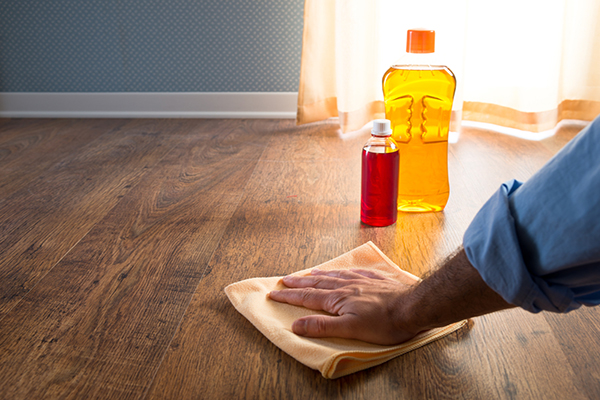
Common Ingredients in Natural Wood Floor Cleaners
Vinegar
Vinegar is a popular natural cleaner due to its acidity, which helps dissolve dirt and grime. It’s effective in cutting through grease and neutralizing odors. However, it should be diluted properly to avoid damaging the wood’s finish. Typically, a mixture of one part vinegar to ten parts water works well for wood floors.
Baking Soda
Baking soda is a gentle abrasive that can help lift stubborn dirt and stains without scratching the wood. It’s also a natural deodorizer, making it useful for eliminating pet odors or musty smells. When mixed with water, it creates a paste that can be used for spot cleaning.
Olive Oil
Olive oil is often used in natural cleaners to condition and polish wood floors. It helps restore the wood’s natural sheen and adds a protective layer against wear and tear. A small amount can go a long way, so it’s important to use it sparingly.
Essential Oils
Essential oils like lavender, lemon, and tea tree oil add antimicrobial properties and pleasant scents to natural cleaners. They also have antiseptic and antifungal qualities, helping to keep your floors not just clean but also free from harmful microbes.
Castile Soap
Castile soap, made from olive oil, is a versatile and gentle cleaner suitable for wood floors. It effectively removes dirt and grime without stripping away the wood’s natural oils. A few drops of Castile soap mixed with water can be used as a general-purpose cleaner.
Rubbing Alcohol
Rubbing alcohol helps disinfect surfaces and evaporates quickly, reducing the risk of water damage to wood floors. It can be used in small amounts to help sanitize high-traffic areas and remove sticky residues without leaving a buildup.
Homemade Wood Floor Cleaner Recipes
Simple Vinegar Solution
A simple yet effective natural cleaner can be made by mixing 1 cup of white vinegar with 1 gallon of warm water. This solution is great for everyday cleaning. Use a damp mop to apply the solution to your floors, ensuring the mop is not too wet to avoid water damage.
Baking Soda Scrub
For tough stains, a baking soda scrub can be very effective. Mix 2 tablespoons of baking soda with enough water to form a paste. Apply the paste to the stained area and gently scrub with a soft cloth or sponge. Wipe clean with a damp cloth and dry the area thoroughly.
Olive Oil and Vinegar Polish
To add shine to your wood floors, mix 1 cup of olive oil with 1/2 cup of white vinegar. Add a few drops of your favorite essential oil for a pleasant scent. Apply the mixture to the floor using a soft cloth, buffing it in circular motions to enhance the wood’s natural luster.
Castile Soap Cleaner
A gentle cleaner can be made by combining 1 tablespoon of Castile soap with 1 quart of warm water. This solution works well for regular maintenance and cleaning. Mop the floors with the solution and dry them with a clean, dry mop to prevent any water damage.
Lemon and Olive Oil Cleaner
Combine the juice of one lemon with 1/2 cup of olive oil and 1 cup of water. This cleaner not only removes dirt but also leaves your floors smelling fresh and citrusy. Apply with a soft cloth and buff the floors to a shine.
Alcohol-Based Cleaner
For a quick-drying cleaner, mix 1 cup of rubbing alcohol with 1 cup of water and add a few drops of essential oil. This solution disinfects and cleans effectively, making it ideal for homes with pets or small children. Use a spray bottle to apply the cleaner and wipe it off with a dry cloth.
Tips for Applying Natural Wood Floor Cleaners
Regular Maintenance
Regular maintenance is key to keeping your wood floors looking their best. Sweep or vacuum regularly to remove dust and debris that can scratch the surface. Use a microfiber mop for dusting to avoid pushing dirt around.
Spot Cleaning
Address spills and stains immediately to prevent them from setting in. Use a damp cloth with a small amount of your homemade cleaner to spot-clean the affected area. Avoid using excessive water, which can cause damage over time.
Proper Mopping Techniques
When mopping wood floors, always use a damp mop rather than a wet one. Excess water can seep into the seams and cause the wood to swell and warp. Wring out the mop thoroughly before use and dry the floor with a clean, dry mop or towel afterward.
Polishing and Buffing
Polish your wood floors periodically to maintain their shine and protect the surface. Use a natural polish like the olive oil and vinegar mixture mentioned earlier. Buff the floors with a soft cloth or a buffing machine to achieve a high-gloss finish.
Dealing with Scratches
For minor scratches, a mixture of olive oil and vinegar can help conceal the damage. Apply the mixture to the scratch and buff gently with a soft cloth. For deeper scratches, consider using a wood touch-up marker or filler.
Seasonal Care
Wood floors can expand and contract with changes in humidity and temperature. Use a humidifier during dry winter months to prevent the wood from shrinking and cracking. In summer, ensure proper ventilation to avoid excessive moisture buildup.
Commercial Natural Wood Floor Cleaners
Method Squirt + Mop Wood Floor Cleaner
Method’s wood floor cleaner is a popular choice for those seeking a natural and effective solution. It’s plant-based, non-toxic, and comes in a convenient squirt bottle. The almond-scented formula cleans and polishes wood floors without leaving a residue.
Bona Hardwood Floor Cleaner
Bona offers a water-based, environmentally friendly cleaner that’s safe for use on all types of wood floors. It’s Greenguard Gold certified, ensuring low chemical emissions. Bona’s cleaner is known for its streak-free finish and easy application.
Murphy’s Oil Soap
Murphy’s Oil Soap is a classic natural cleaner trusted by many for wood floors. Made with 98% natural ingredients, including vegetable oil, it cleans and nourishes the wood, enhancing its natural beauty. It’s also biodegradable and phosphate-free.
Better Life Naturally Dirt-Destroying Floor Cleaner
This cleaner from Better Life is made with plant-derived ingredients and is free from synthetic fragrances and dyes. It effectively removes dirt and grime, leaving your wood floors clean and shiny. The formula is gentle enough for daily use and safe for pets and children.
Aunt Fannie’s Floor Cleaner Vinegar Wash
Aunt Fannie’s floor cleaner uses vinegar and essential oils to create a powerful yet gentle cleaning solution. It’s non-toxic, biodegradable, and leaves a refreshing scent. The cleaner is especially effective at cutting through grease and removing stubborn stains.
Eco-Me Floor Cleaner
Eco-Me’s floor cleaner is made with natural plant extracts and essential oils, providing a safe and effective cleaning solution. It’s free from harsh chemicals, making it ideal for households with allergies or sensitivities. The cleaner leaves no residue and keeps wood floors looking pristine.
Natural Homemade Wood Floor Cleaner Recipes
My “No Vinegar” Cleaner for Hardwood Floors
Make Your Own Homemade Wood Floor Cleaner
Natural Wood Floor Cleaner Ecozone Cleaning Products
How to Make DIY Hardwood Floor Cleaner
Homemade Wood Floor Cleaner – Recipes with Essential Oils
Pin on Cleaning Hacks :
Related Posts:
- Parquet Wood Flooring Texture
- Wood Floor Damage Repair
- Wood Floor Bathroom
- White Driftwood Flooring
- Engineered Wood Flooring Dark
- DIY Wood Flooring Cheap
- Wood Flooring Ideas For Kitchen
- Wood Floor For Garage
- Rustic Solid Wood Flooring
- Dark Wood Floor Kitchen Ideas
Introduction to Wood Floor Natural Cleaner
Wood floor natural cleaners are a great way to keep your floors looking their best. Not only are they safe for the environment, but they also provide a gentler and more natural cleaning solution for your hardwood floors. Natural cleaners can help protect your floors from damage caused by harsh chemicals, while still providing a deep clean that will keep them looking beautiful for years to come. In this article, we will explore the benefits of using natural cleaners for your wood floors and provide some tips on choosing the right cleaner for your home.
What Are The Benefits Of Using Wood Floor Natural Cleaners?
One of the main benefits of using wood floor natural cleaners is that they are gentle on the environment. Natural cleaners are made from plant-based ingredients and don’t contain any harsh chemicals that can potentially damage the environment. In addition, these cleaners are also much gentler on your wood floors than traditional chemical-based cleansers. Natural cleaners are less likely to damage the finish on your wood floors, and they can help protect them from wear and tear over time.
Another benefit of using natural cleaners is that they are often cheaper than chemical-based alternatives. Natural cleaners are easy to find at most retailers, and they can be much more cost-effective than buying expensive chemical-based cleansers. Natural cleaners also typically don’t require any special equipment or tools, so you’ll be able to save money on tools as well.
Finally, natural cleaners often leave behind a pleasant scent that won’t overpower the room like some chemical-based cleansers do. Many people prefer the smell of natural ingredients like lemon or lavender over the smell of harsh chemicals.
How Do You Choose The Right Wood Floor Natural Cleaner?
When choosing a wood floor natural cleaner, it’s important to consider the type of wood floor you have in your home. Different types of wood floors require different types of cleaning solutions, so make sure you choose a cleaner that is specifically designed for your type of wood floor. You should also consider the amount of traffic your wood floors get regularly, as this will determine how often you need to clean them and how much cleaner you should use each time.
In addition, be sure to read the labels on all of the different natural cleaners available before making a purchase. This will ensure that you choose a cleaner that is safe for use on your wood floors and won’t cause any damage. Many natural cleaners are designed for specific types of wood flooring, so make sure you read the label carefully before buying one.
Are Wood Floor Natural Cleaners Safe for Pets?
Yes, most wood floor natural cleaners are safe for pets when used as directed. Be sure to read the label carefully before using any cleaner around pets to make sure it won’t cause any harm. It’s also important to keep pets away from the area while you’re cleaning with a natural cleaner, as some ingredients may be toxic if ingested.
How Often Should I Use A Wood Floor Natural Cleaner?
The frequency with which you need to use a wood floor natural cleaner will depend on how much traffic your floors get each day and how often they need to be cleaned to stay looking their best. Generally speaking, it’s best to use a natural cleaner every two weeks or so to keep dirt and debris from building up on your floors. If your floors get a lot of traffic, you may want to clean them more often than this to maintain their appearance.
What Are The Best Types Of Wood Floor Natural Cleaners?
The best type of wood floor natural cleaner will depend on what type of wood floor you have in your home and what type of cleaning solution is needed to keep it looking its best. Generally speaking, citrus-based cleaners are great for removing dirt and debris from hardwood floors, while plant-based cleaners are better for softwood floors. Be sure to read the labels carefully before purchasing to choose the best type of

